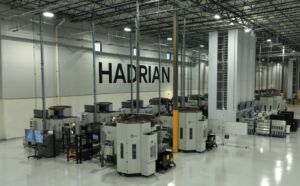Commercial real estate development is a high-risk venture, led by entrepreneurs driving economic growth in our communities. Office buildings, shopping centers, apartments, hotels, manufacturing facilities and fulfillment/distribution centers are examples of real estate developments that require significant, high-risk investment. These projects provide jobs, create affordable housing and meet other needs for Arizonans.
READ ALSO: Here’s why the West Valley is exploding with economic growth
While the COVID-19 pandemic challenged nearly every commercial real estate sector in 2020 and 2021, a new report by Newmark Research, titled “The Newmark Opportunity Index,” ranks Phoenix among the hottest cities for new opportunities in the multifamily housing and hospitality sectors. Over the next few years, buildings in Arizona will need to be repurposed and reimagined to adapt to the post-COVID era. As the Valley continues its pandemic recovery and attracts new residents from across the country, it’s important to promote policies that will mobilize and encourage real estate investment, not create unnecessary barriers.
On the heels of a successful state legislative session that lowered commercial property taxes and income taxes, NAIOP is turning its attention to federal policy proposals that would reduce investment in innovative businesses and real estate projects throughout the state.

President Joe Biden has committed to helping small businesses “Build Back Better” through grants, investments and an infrastructure package. Sen. Kyrsten
Sinema has been a leader in finding bipartisan compromise on a major infrastructure package that would fund critical highway, water and port of entry projects.
However, other members of Congress have introduced legislation that would substantially raise taxes on entrepreneurs and investors. Several of these proposals would directly hit commercial real estate by raising the capital gains tax rates, eliminating 1031 like-kind exchanges and taxing carried interest at the higher, ordinary income rate.
Many real estate projects are developed by small partnerships that rely on a combination of loans, private investment and business expertise, or “sweat equity.”
For context, these projects frequently cost tens of millions of dollars to complete — an insurmountable amount of cash for most developers and entrepreneurs to have on hand.
These projects typically are funded by investment partnerships between a general partner, who does most of the work, and limited partners, who provide most of the funding. Carried interest, often referred to in real estate as “the promoted return,” is the portion of the profits that the general partner realizes for his or her investment of time and money when a project is successful. This is not compensation for routine work, such as leasing or property management, but rather investment income for the person who provided sweat equity along with expertise, business acumen and hard work.
Raising taxes on individuals and small businesses who contribute funds or sweat equity to a project will diminish the incentive to take on risk. This will make it more difficult to attract companies that will create new jobs or investors who are interested in developing affordable housing. It will also make it harder to increase warehousing capacity for businesses that want to to avoid product shortages, similar to those experienced during the initial months of the COVID-19 pandemic.
Another concerning proposal would eliminate Section 1031 of the Internal Revenue Code for like-kind exchanges greater than $500,000. Since 1921, Section 1031 has allowed investors to defer paying capital gains taxes on investment property sales by reinvesting the proceeds into a similar investment property within a specified time frame.
Reinvestment of capital gains can help businesses continue to grow. Current legislative proposals would require the taxpayer to recognize gains from the sale of real property in the same tax year they transfer the property. These restrictions would stifle transactions, provide a disincentive to upgrade assets and hamper the marketplace.
After a year like 2020, this is certainly not the time to discourage long-term investment in Arizona or anywhere throughout the nation.
While we look to lawmakers in Washington, D.C., to pass a reasonable bipartisan infrastructure package, we strongly encourage Arizona’s congressional delegation to reject any proposal that could harm local entrepreneurial innovation, risk taking and sweat equity. This is the time to put our communities and job creators first.
Suzanne Kinney is the president and CEO of the Arizona Chapter of NAIOP, the Commercial Real Estate Development Association.



